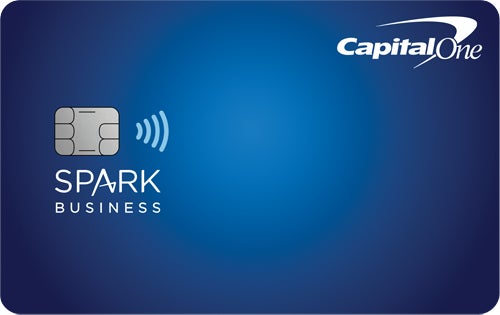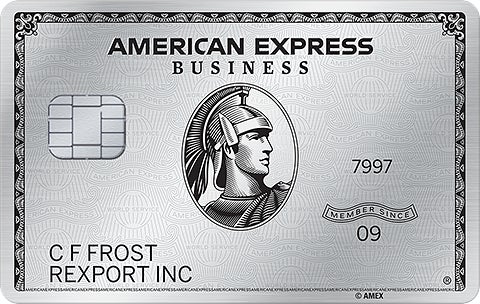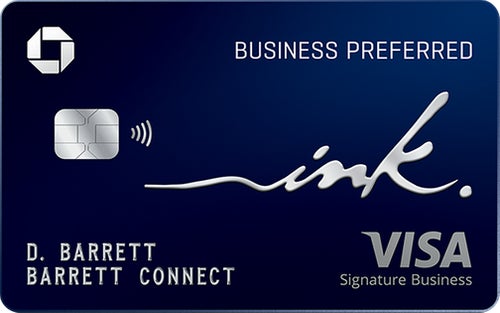| Business Rating: | 4.3 / 5 |
| Rewards Value | 5.0 |
| Annual Percentage Rate | 3.0 |
| Rewards Flexibility | 3.0 |
| Features | 3.0 |
| Customer Experience | 4.0 |
In a Nutshell:
Even occasional United flyers should rack up miles quickly thanks to the United Business Card’s competitive rewards rate on travel and everyday purchases. Plus, you have a chance at even more miles when you pair it with a personal Chase United card.
All information about the United℠ Business Card has been collected independently by CreditCards.com and has not been reviewed by the issuer.
Rewards Rate
|  |
Sign-up Bonus
|  |
Annual Fee $150 |  |
APR 19.74% - 28.24% Variable |  |
Rewards Redemption Pros
Cons
|  |
Customer Experience
|  |
Other Notable Features: First checked bag free, priority boarding for you and companions on same reservation, 2 United Club one-time passes per year when primary cardmember or authorized user is traveling, room upgrades and free Wi-Fi at Luxury Hotel & Resort Collection, lost luggage reimbursement, trip cancellation/interruption insurance, trip delay reimbursement, roadside assistance, extended warranty, travel and emergency assistance services, purchase protection, no charge for employee cards, no foreign transaction fee, 25% back on in-flight United purchases
Best suited to occasional business travelers, the United Business Card offers a solid rewards rate in practical spending categories. Add in extra bonuses designed to reward United loyalists and you shouldn’t have much trouble stockpiling United miles.
That said, the card’s bonus categories may not fit with your business’ spending habits, and if you’re looking for luxury perks, you may need to shell out a higher annual fee or stick with a personal travel credit card.
Solid rewards rate on everyday purchases
The United Business Card is one of only a few airline cards that offer bonuses on spending outside of purchases made directly with the airline. You’ll earn 2x miles on a wide variety of spending categories, including United purchases, local transit and commuting (such as train tickets, taxi cabs, mass transit, tolls and rideshare services), gas stations, dining (including eligible delivery services) and office supply stores. You’ll also earn 1x miles on all other purchases.
These bonus categories are impressive for their variety and practicality, allowing you to earn bonus miles on a chunk of your business spending. Plus, there’s no additional cost for employee cards, so employees can easily add to your earnings via travel spending, business lunches and more.
That said, we estimate that the average business doesn’t spend enough in these categories to significantly boost the card’s overall rewards rate. A general business card that offers travel rewards like the American Express® Business Gold Card may offer more value per dollar, along with flexible points that can be used with other airlines.
United MileagePlus miles are fairly flexible, and you have the option to redeem your rewards for purchases such as car rentals, hotel stays or gift cards, though you’ll get the most value for your miles when you use them on United airfare. You can also use miles to book with one of 28 Star Alliance partners.
See related: United Airlines partners
Extra bonuses for United loyalists
The United Business Card comes with a nice incentive for cardholders who add a personal United credit card to their wallet. You’ll earn an additional 5,000 bonus miles each year on your account anniversary if you also have both a United Business Card and a personal United card like the United℠ Explorer Card or the United Club℠ Card. If you book with United frequently enough to justify having a personal United card, this is a valuable benefit.
Keep in mind, however, that both the United Explorer Card and the United Club Card carry annual fees that are unlikely to be offset long term by an annual 5,000-point bonus, which is worth around $75 (the Explorer card carries a $150 annual fee and the United Club Card carries a $695 annual fee).
You can also get a $125 United travel credit after making five United flight purchases of $100 or more each calendar year with your United Business Card. Flight travel-related purchases include seat upgrades, Economy Plus, inflight food, beverages and Wi-Fi and baggage service charges and other United fees. This credit can be used to cover airfare, among other United purchases.
Relatively low annual fee
Like most co-branded airline cards, the United Business Card carries an annual fee. However, the $150 annual fee is a relatively small price to pay considering the card’s sign-up bonus, annual travel credit, ongoing rewards rate and other perks.
Solid sign-up bonus
Another intriguing aspect of the United Business Card is its sign-up bonus. For a limited time, you can earn 100,000 bonus miles and 2,000 PQP after you spend $5,000 on purchases in the first 3 months your account is open. Based on Bankrate’s latest valuations, United miles are worth 0.9 cents per mile, making this new bonus worth around $900 toward United travel. The card’s bonus spending requirement should also be attainable for many small-business owners.
That said, United Saver awards – which tend to offer the greatest mileage value – can have limited availability. And since United uses dynamic award pricing for flights booked with rewards, it’s harder to tell in advance how far your miles will take you.
Respectable perks
Along with its terrific ongoing rewards, the United Business Card gets you a number of compelling travel perks, including:
- First checked bag free – You and a companion traveling on the same reservation can each check your first bag for free. Since this is a $40 value each way, per person, this could save you as much as $160 per roundtrip. You must include your United MileagePlus number in your reservation.
- Priority boarding – You and any companions on the same reservation will be able to board United flights prior to general boarding.
- Two one-time United Club passes per year – United Club lounges feature complimentary beverages and snacks, free Wi-Fi and more. Day passes usually cost $59 each, so this nearly makes up for the annual fee alone. Note, however, that to be admitted to the more exclusive Polaris Lounges, you must meet additional requirements.
- 25% back on in-flight United purchases, including Wi-Fi, food and beverages.
While these benefits should make business travel more pleasant and productive, they pale in comparison to the exclusive perks offered by many luxury travel cards. If you place a high priority on lounge access, expedited security screening or other elite perks, you may want to consider shelling out a higher annual fee or looking for a personal travel credit card.
Tip:If you don’t need a business credit card, consider the United Explorer card, which offers a credit of up to $120 toward a Global Entry or TSA PreCheck application every four years.
No automatic elite status
Like its predecessor, the United Explorer Business Card, the United Business Card does not offer automatic elite status in the United MileagePlus program.
In order to get United elite status, you must reach a certain number of PQPs (Premier qualifying points) and PQFs (Premier qualifying flights). Depending on how many you earn, you can qualify for elite status by combining PQPs and PQFs or based on PQPs alone. United Business cardholders earn 1 PQP for every $20 spent on purchases, up to a maximum of 4,000 PQP in a calendar year.
See related: United Airlines elite status benefits
Other benefits
In addition to the card’s United-specific travel perks, you’ll enjoy a number of other benefits and consumer protections, including travel accident insurance, travel and emergency assistance services, purchase protection and extended warranty protection.
Some of the card’s benefits worthy of special mention include:
- Auto rental collision damage waiver – When renting for business purposes, you’ll be reimbursed up to the actual cash value of the vehicle for theft and collision damage both in the U.S. and abroad.
- Baggage delay insurance – If your bag is delayed more than six hours, you can be reimbursed up to $100 a day for three days for essential purchases like toiletries and clothing.
- Lost luggage reimbursement – You get coverage up to $3,000 per passenger if you or an immediate family member check or carry on luggage that is lost or damaged by the carrier.
- Trip delay reimbursement – If your travel is delayed by more than 12 hours or requires an overnight stay, you’re covered for unreimbursed expenses like meals and lodging (up to $500 per ticket).
- Roadside assistance – You can call for a tow, jumpstart, tire change, locksmith or gas if you have a roadside emergency. You’re covered up to $50 per incident, 4 times a year.
- Luxury Hotel & Resort Collection perks – Make a reservation with your card at one of over 900 hotels, resorts, lodges and spas and you can enjoy room upgrades, complimentary breakfast for two people, free Wi-Fi and other benefits.
- No foreign transaction fee – You won’t be charged any additional fees for purchases made abroad, which is good news if business often takes you overseas.
See related: Credit cards with the best extended warranties and shopping protections
How does the United Business Card compare to other rewards cards?
While the United Business Card lets you earn bonus miles in varied and practical spending categories, you’re limited to United and its partner network.
If you’re open to a general business card that offers travel rewards, you may be able to enjoy added benefits and more flexibility. Here are a few alternatives to consider:
 |  |  |
Rewards rate
| Rewards rate
| Rewards rate
|
| Welcome bonus | Welcome bonus
| Welcome bonus
|
Annual fee
| Annual fee
| Annual fee
|
Other things to know
| Other things to know
| Other things to know
|
Capital One Spark Miles for Business
A smart choice for business owners who want to earn miles at a flat rate, the Capital One Spark Miles for Business card offers 2x miles on every purchase, regardless of where or what you buy. Even better, the annual fee is waived for the first year and your mileage redemption value is the same whether you redeem for travel in the Capital One’s travel booking site or for outside travel purchases.
The Business Platinum Card from American Express
Don’t be scared off by this card’s high annual fee, as the Business Platinum Card’s bonuses and perks go a long way toward making up that cost. Along with a great welcome bonus for big spenders, you’ll get an outsized rewards rate on travel purchases made through American Express Travel and on purchases over $5,000, making the card an ideal choice for businesses that spend more on travel and large purchases. You’ll also enjoy a slew of luxury perks like credits for expedited airport security and exclusive lounge access.
Ink Business Preferred Card
The Ink Business Preferred card offers a huge sign-up bonus and great value and flexibility as part of Chase’s Ultimate Rewards program. You’ll earn 3x points on travel, shipping, internet, cable, phone services and advertising purchases on your first $150,000 in combined spend per year, plus 1x points on everything else. Best of all, you can transfer points to one of Chase’s many airline partners or redeem for travel through the Chase Travel portal for even more value.
Why get the United Business Card?
- You are a frequent flyer of United.
- You want to save money on checked bags or United Club access.
- You want to earn miles on more than airline purchases.
- You’ll make use of the two one-time United Club passes you get each year when primary cardmember or authorized user is traveling.
- You want a card that carries no foreign transaction fee.
How to use the United Business Card
- Make five United purchases of $100 or more per year to earn the $125 travel credit.
- Pair with a personal United card to earn 5,000 bonus points per year.
- Use the card for all United in-flight purchases.
- Request employee cards at no additional cost to make it easier to earn rewards on business spending.
Is the United Business Card worth it?
If you’re an occasional business flyer and don’t mind limiting yourself to United and its airline partners, the United Business Card offers good value via its varied, practical bonus categories and annual bonuses and credits.
* All information about the Ink Business Preferred® Credit Card has been collected independently by CreditCards.com. The issuer did not provide the content, nor is it responsible for its accuracy.
All reviews are prepared by CreditCards.com staff. Opinions expressed therein are solely those of the reviewer and have not been reviewed or approved by any advertiser. The information, including card rates and fees, presented in the review is accurate as of the date of the review. Check the data at the top of this page and the bank’s website for the most current information.
Responses to comments in the discussion section below are not provided, reviewed, approved, endorsed or commissioned by our financial partners. It is not our partner’s responsibility to ensure all posts or questions are answered.
